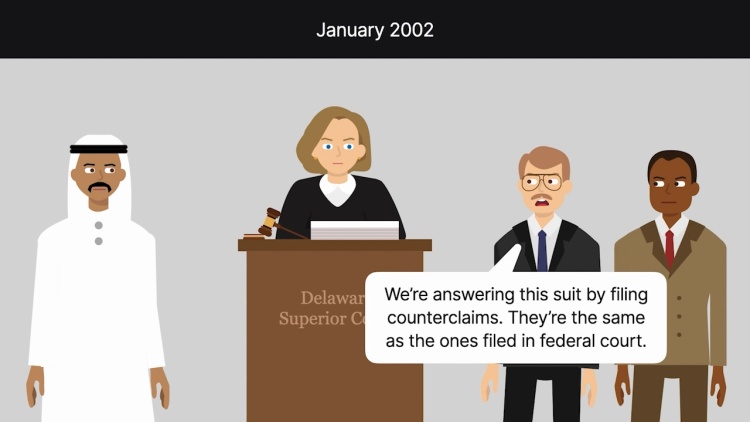Exxon Mobil Corp. v. Saudi Basic Indus. Corp.
United States Supreme Court
544 U.S. 280 (2005)
- Written by Alexis Tsotakos, JD
Facts
Two subsidiaries of Exxon Mobil Corporation (plaintiff), Exxon Corp. and Mobil Corp. (the subsidiaries), entered into several joint ventures with Saudi Basic Industries Corporation (SBIC) (defendant) in 1980. Twenty years later, the companies were in dispute about the distribution of royalties. In July 2000, SBIC preemptively filed suit against the subsidiaries in Delaware Superior Court to receive a declaratory judgment stating that the distribution of royalties was proper under the joint venture agreements. Two weeks later, the subsidiaries filed suit against SBIC in United States Federal Court for the District of New Jersey alleging SBIC had overcharged them with respect to sublicenses. The subsidiaries answered SBIC’s suit in state court and filed identical counterclaims to the claims they filed in federal court. After a jury trial, the subsidiaries were awarded a $400 million verdict. Before the trial in state court, SBIC moved to dismiss the federal suit, and the court denied the motion. SBIC filed an interlocutory appeal, which the court did not hear until after the termination of the state action. Eight months after a verdict was rendered in state court, the court of appeals dismissed the subsidiaries’ claims on the basis of the Rooker-Feldman doctrine. The United States Supreme Court granted certiorari to resolve a split in the circuits regarding the application of the Rooker-Feldman doctrine.
Rule of Law
Issue
Holding and Reasoning (Ginsburg, J.)
What to do next…
Here's why 904,000 law students have relied on our case briefs:
- Written by law professors and practitioners, not other law students. 47,100 briefs, keyed to 995 casebooks. Top-notch customer support.
- The right amount of information, includes the facts, issues, rule of law, holding and reasoning, and any concurrences and dissents.
- Access in your classes, works on your mobile and tablet. Massive library of related video lessons and high quality multiple-choice questions.
- Easy to use, uniform format for every case brief. Written in plain English, not in legalese. Our briefs summarize and simplify; they don’t just repeat the court’s language.





